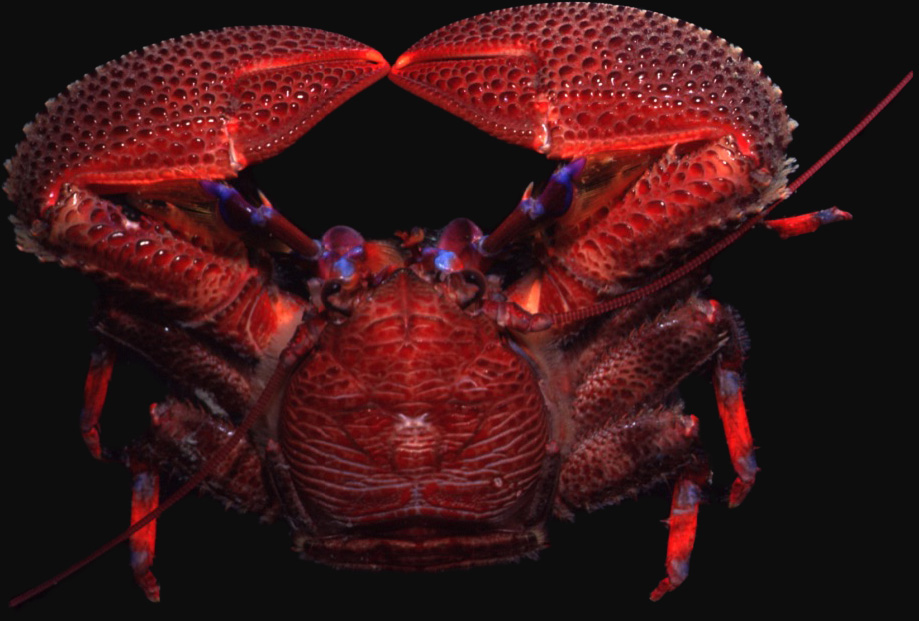The Stillman Lab in the News
Our research and expertise helps to inform the public
"Baked barnacles, scorched cherries: the disastrous impact of heatwaves on plants and animals" Aug 1 2021
 "Jonathon Stillman is quoted in this article about the impacts of heatwaves published in The Guardian."
"Jonathon Stillman is quoted in this article about the impacts of heatwaves published in The Guardian."
"Extreme heat triggers mass die-offs and stress for wildlife in the West" July 22 2021
 "Jonathon Stillman is quoted in this article about the impacts of heatwaves published in National Geographic."
"Jonathon Stillman is quoted in this article about the impacts of heatwaves published in National Geographic."
"This Burrowing Clam Is Not Boring. It Uses Acid to Make Its Home." Jun. 14 2018
 "Researchers have solved the mystery of how this small species of giant clam forms its own cave inside the rock of a coral reef."
"Researchers have solved the mystery of how this small species of giant clam forms its own cave inside the rock of a coral reef."
"Cold-blooded species face wipeout as they cannot cope with global warming, study says" May 19 2016
 "Cold-blooded animals are only able to survive within a particular temperature range. The underlying rise in temperature associated with climate change is pushing them closer to their limit."
"Cold-blooded animals are only able to survive within a particular temperature range. The underlying rise in temperature associated with climate change is pushing them closer to their limit."
"Rising temperatures may cause problems for cold-blooded critters" May 20 2015
 "Rising temperatures may cause problems for cold-blooded critters"
"Rising temperatures may cause problems for cold-blooded critters"
"Warmer Waters Could Scuttle Activity of Crabs" Nov. 18 2014
 "Small crabs found on California’s shores may be capable of adapting to a warming climate, but the effort will leave them little energy for tasks like growth and reproduction."
"Small crabs found on California’s shores may be capable of adapting to a warming climate, but the effort will leave them little energy for tasks like growth and reproduction."
"Coastal Crabs in Survival Mode Under Climate Change" Nov. 18 2014
 "Crabs can run out of energy for much beyond survival when their environment becomes too warm and too acidic, even for a brief period of time."
"Crabs can run out of energy for much beyond survival when their environment becomes too warm and too acidic, even for a brief period of time."
"Climate change puts coastal crabs in survival mode, study finds" Nov. 12 2014
 "The findings have grim long-term implications for intertidal zone crabs as well as the myriad species that depend on them, and could be an indicator of how other intertidal organisms may respond to a rapidly changing climate."
"The findings have grim long-term implications for intertidal zone crabs as well as the myriad species that depend on them, and could be an indicator of how other intertidal organisms may respond to a rapidly changing climate."
"Papers Find Mixed Impacts on Ocean Species from Rising CO2" Aug. 26 2013
 "it’s quite clear that regions already heavily affected by other human activities (coastal pollution, overfishing, etc.) are — no surprise — likely to feel more stress from acidification."
"it’s quite clear that regions already heavily affected by other human activities (coastal pollution, overfishing, etc.) are — no surprise — likely to feel more stress from acidification."
"Tiburon Romberg study shows algae may have positive impact on global warming" Aug 26, 2013
 "A single-celled algae may still be able to grow calcified shells even as oceans grow warmer and more acidic, which could help slow or reverse global warming."
"A single-celled algae may still be able to grow calcified shells even as oceans grow warmer and more acidic, which could help slow or reverse global warming."
"Carbon-sequestering ocean plants may cope with climate changes over the long run" Aug. 25 2013
 "A year-long experiment on tiny ocean organisms called coccolithophores suggests that the single-celled algae may still be able to grow their calcified shells even as oceans grow warmer and more acidic in Earth's near future."
"A year-long experiment on tiny ocean organisms called coccolithophores suggests that the single-celled algae may still be able to grow their calcified shells even as oceans grow warmer and more acidic in Earth's near future."
Broadcast Media
Our research has been featured in a National Geographic special and in Local News Broadcasts
National Geographic "Strange Days on Planet Earth" Episode Two: "The One Degree Factor"
 A 4-part series on how Earth's ecosystems are changing. Here we look at how small temperature changes have big impacts. Narrated by Edward Norton.
A 4-part series on how Earth's ecosystems are changing. Here we look at how small temperature changes have big impacts. Narrated by Edward Norton.
SFSU State of Events news broadcast
 A terrific interview about how marine habitats are changing by a video journalism student in SFSU's Broadcast program.
A terrific interview about how marine habitats are changing by a video journalism student in SFSU's Broadcast program.
KCBS San Francisco Radio 6-20-15
 Interview by Alex Gunderson about how global warming will impact animals and ecosystems.
Interview by Alex Gunderson about how global warming will impact animals and ecosystems.
 MEDIA COVERAGE OF THE STILLMAN LAB
MEDIA COVERAGE OF THE STILLMAN LAB